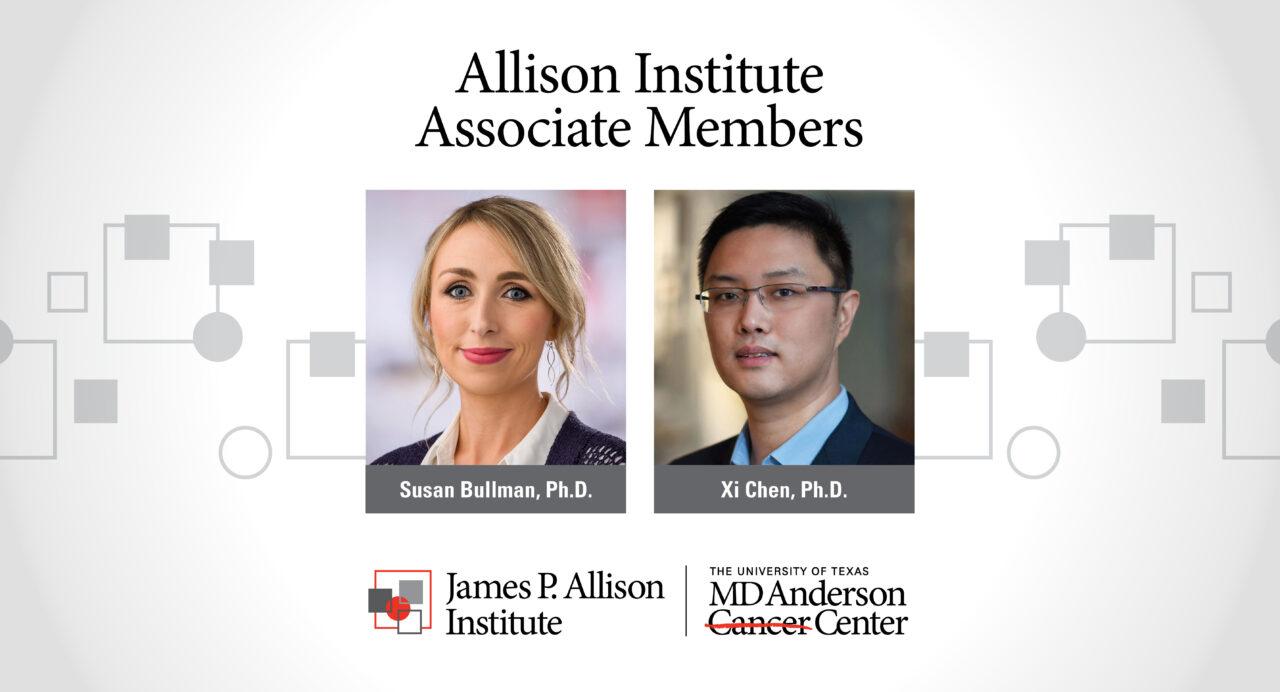The James P. Allison Institute at The University of Texas MD Anderson Cancer Center announced the appointment of its newest members, Susan Bullman, and Xi Chen, to further the institute’s ongoing work of impactful immunobiology research.
These accomplished researchers, joining as associate members, bring valuable expertise in studying how the intra-tumoral microbiome and the immune microenvironment influence patient responses to immunotherapy.
As Allison Institute members, Bullman and Chen will lead impactful research programs aligned with the institute’s priority focus areas and with MD Anderson’s mission to end cancer. Both are focused on pushing the field beyond understanding and manipulating the interaction between T cells and cancer cells toward multiple integrated areas that influence tumor immunity.
“We are committed to bringing in the world’s top minds to advance our work toward gaining a comprehensive understanding of the tumor immune response, and we are pleased to welcome Drs. Bullman and Chen to MD Anderson and to the Allison Institute.
Both are leaders in their respective fields, and their unique expertise opens new avenues to our understanding of immunobiology that will help further our work to bring the benefits of immunotherapy to all patients,” – said James P. Allison, Director of the Allison Institute and Regental Professor and Chair of Immunology at MD Anderson.
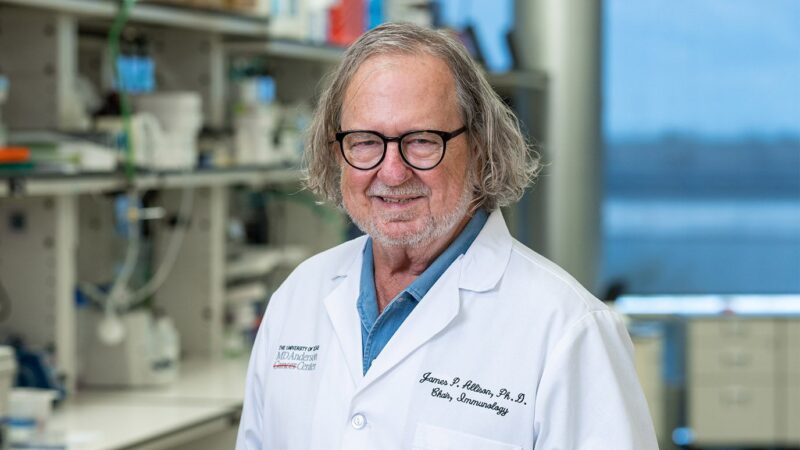
All members are approved by the Allison Institute director, scientific advisory board and MD Anderson’s president. Associate members are mid-career researchers who have made significant contributions to the field. They are provided with seven years of research support and have academic appointments at MD Anderson to facilitate seamless collaboration across the institution.
The Allison Institute was launched to foster groundbreaking science that integrates immunobiology across disciplines. With a strong foundation in discovery science, Allison Institute members work to incorporate laboratory and clinical insights to develop novel and synergetic therapies that enable cures for more patients.
“These new members bring diverse expertise and a commitment to driving forward discoveries that offer meaningful benefits for patients. I look forward to seeing how the talented clinicians and scientists within the Allison Institute work together and across MD Anderson to advance our mission to end cancer,” – said Giulio Draetta, Chief Scientific Officer at MD Anderson.
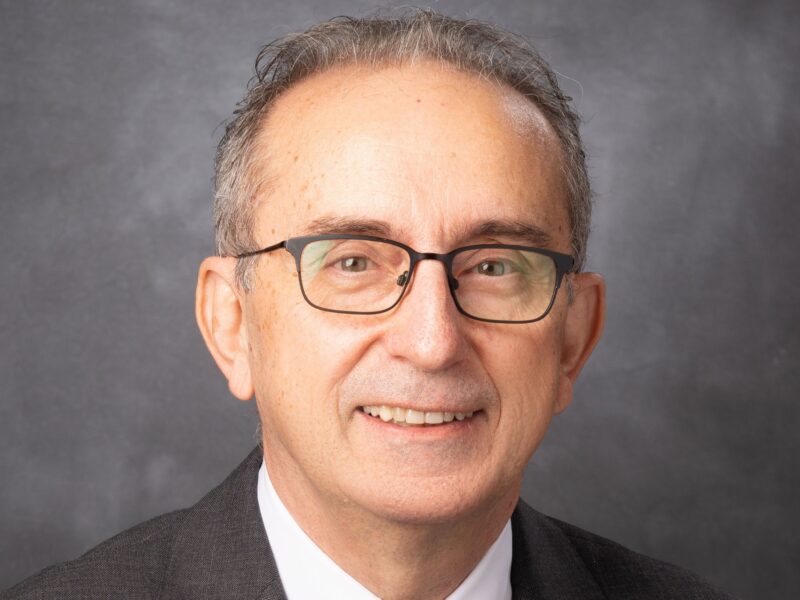
Susan Bullman joins the Allison Institute as an associate member. Recruited from the Fred Hutchinson Cancer Center, Bullman now is an associate professor of Immunology at MD Anderson. Her group studies the role of the intratumoral microbiome on cancer progression and patient response to treatments.
She completed her graduate research in Ireland and her postdoctoral fellowship at the Dana-Farber Cancer Institute and Broad Institute in the laboratory of Matthew Meyerson. She was an instructor in Medicine at Harvard Medical School before joining Fred Hutchinson in 2019.
Bullman’s laboratory combines pre-clinical cancer models, molecular microbiology and in situ imaging together with spatial and single-cell sequencing approaches to understand host-microbial interactions within the tumor microenvironment.

Xi Chen, joins the Allison Institute as an associate member. Recruited from Baylor College of Medicine, he now is an associate professor of Experimental Therapeutics at MD Anderson. He received his Ph.D. from the Genome Institute of Singapore and National University of Singapore in the laboratory of Huck Hui Ng.
There, Chen was one of the first to use chromatin immunoprecipitation sequencing (ChIP-seq) technology to discover the genomic regions now known as super enhancers. As a postdoctoral fellow with Laurie Glimcher, at the Harvard University School of Public Health, he established a connection between the unfolded protein response and triple-negative breast cancer.
He joined Baylor as a Cancer Prevention and Research Institute of Texas (CPRIT) scholar in 2015 and was promoted to tenured associate professor and Cullen Duncan McAshan Endowed Chair in Cancer Research.
Chen’s lab is focused on learning how cancer and its immune microenvironment sense and respond to stresses and therapeutic insults to evade immune surveillance and develop drug resistance. His work stimulated a Phase I trial to evaluate an IRE1 RNAse inhibitor in patients with advanced solid tumors and relapsed/refractory breast cancer.
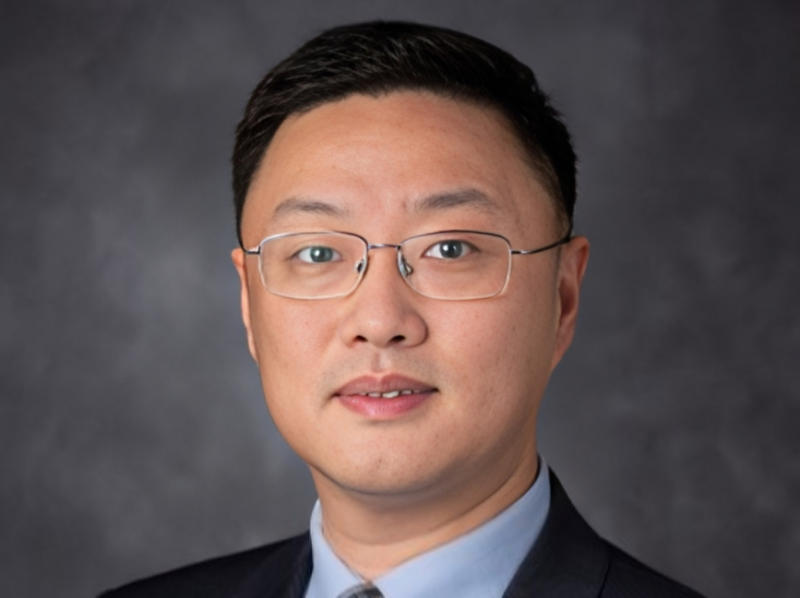
“We are proud to have researchers of their caliber join our team at the Allison Institute. Their expertise compliments our current membership, and I am confident that, together, we will make significant progress to benefit patients,” – said Padmanee Sharma, Director of scientific programs for the Allison Institute and professor of Genitourinary Medical Oncology and Immunology at MD Anderson.
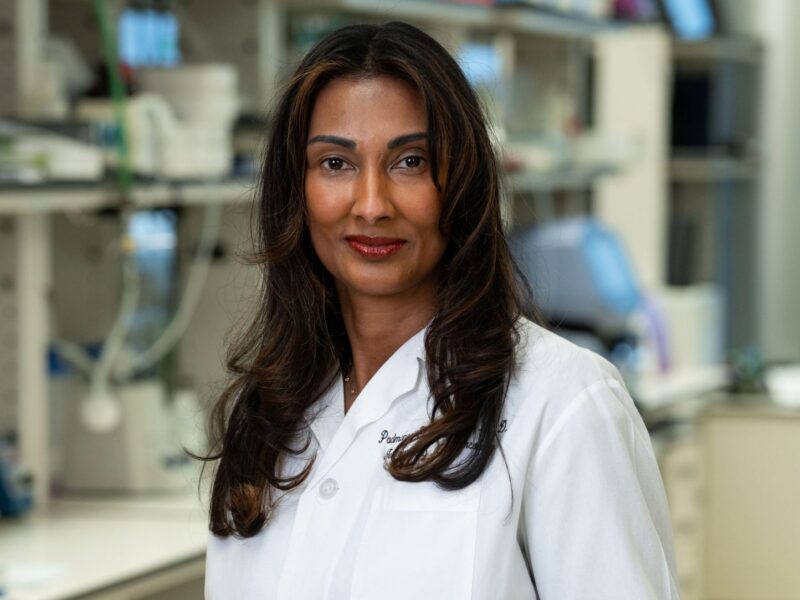
About MD Anderson
The University of Texas MD Anderson Cancer Center in Houston ranks as one of the world’s most respected centers focused on cancer patient care, research, education and prevention. The institution’s sole mission is to end cancer for patients and their families around the world, and, in 1971, it became one of the nation’s first National Cancer Institute (NCI)-designated comprehensive cancer centers. MD Anderson is No. 1 for cancer in U.S. News & World Report’s “Best Hospitals” rankings and has been named one of the nation’s top two hospitals for cancer since the rankings began in 1990. MD Anderson receives a cancer center support grant from the NCI of the National Institutes of Health.
Other posts featuring MD Anderson Cancer Center.


